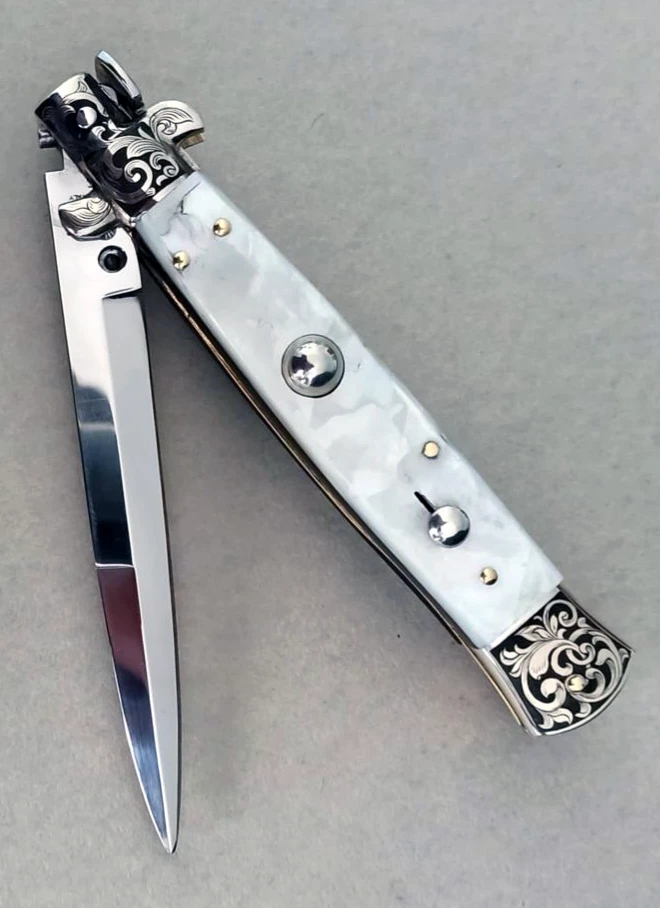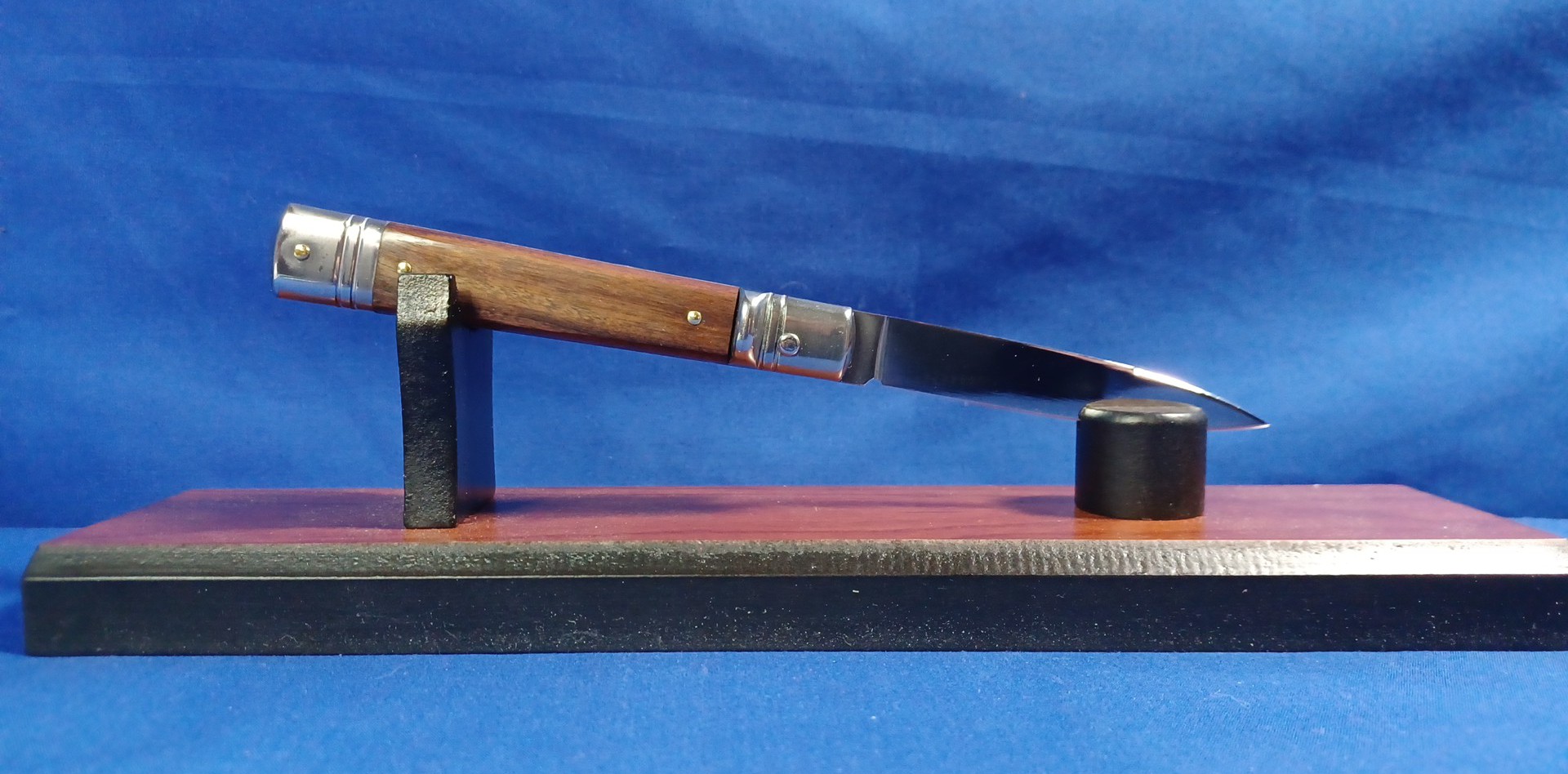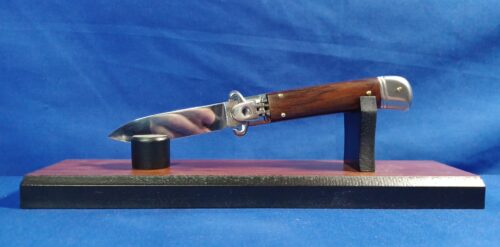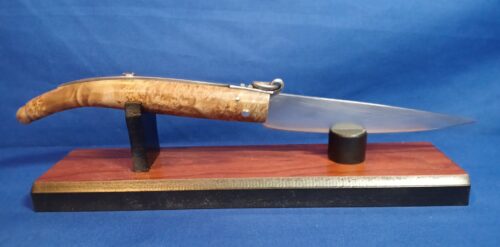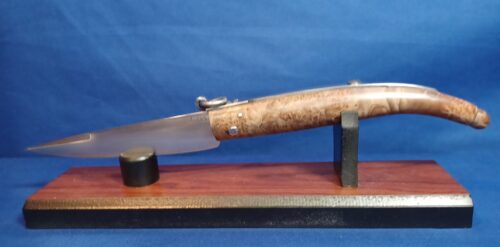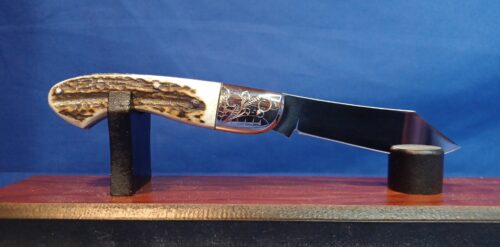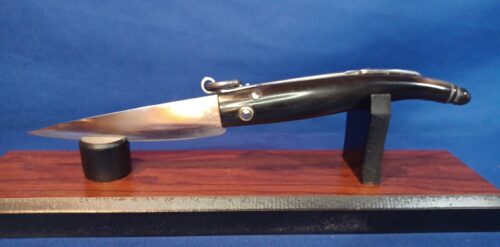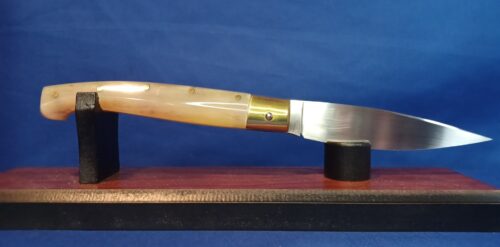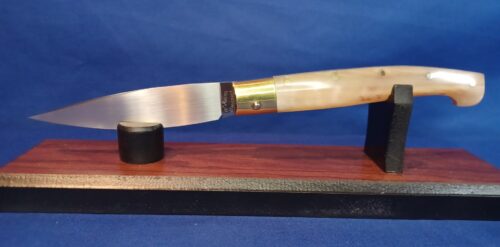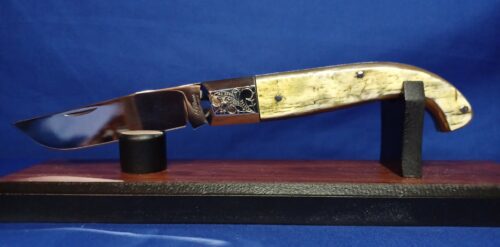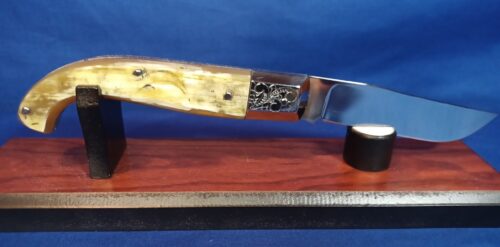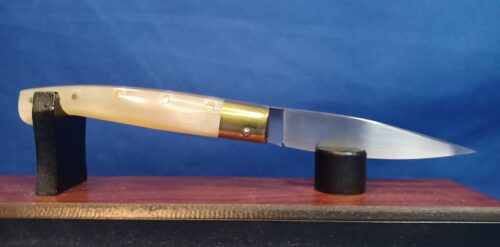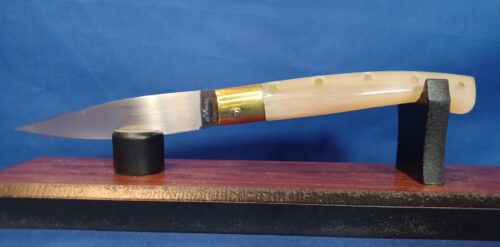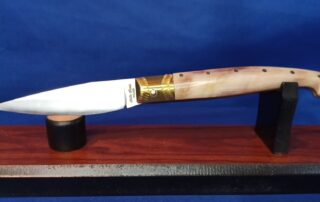Hello and welcome to C.G. Traditional Italian Knives!
Through C.G.T.I.K. my goal is to share my passion with you! Every American knows about the Italian switchblade, thats what started it all off with me. But I was amazed at the other knives from Italy, Sardegna, and other Italian regions that my fellow North Americans knew very little or nothing at all about! Because of my own desire I decided to peel back the layers of the onion and the never ending results is what this website is all about. Yes, there is a store, but PLEASE take some time to check the other areas. What you see is not a finished product. There will be new Italian and Sardinian knives added often along with informational content about the people, places, and the knives!
Got a favorite knife you want to show off in the gallery? Send it to me and I’ll display it A.S.A.P.! Looking for a certain knife or some hard to find information??? Let me know.
As always custom/special order knives by Lelle Floris and others are available! Contact me to schedule a phone consultation to initiate the process. There is also a Facebook Page and an Instagram Account that accompanies C.G.T.I.K.
